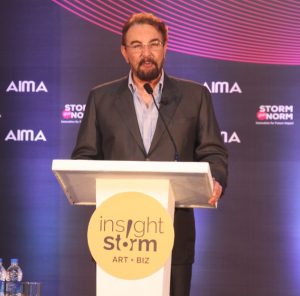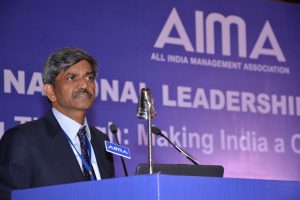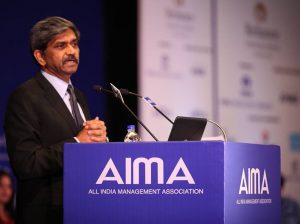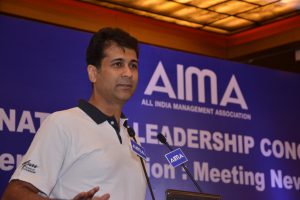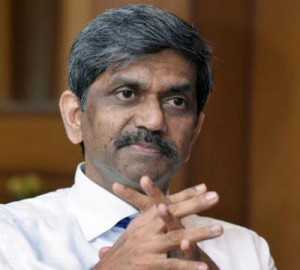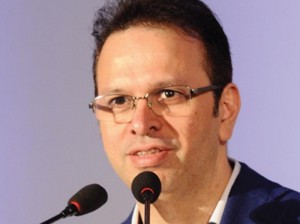
Sadhguru
In another session that took place at AIMA’s 41st National Management Convention, SadhguruJaggiVasudev, commonly known as Sadhguru, who is an Indian yogi, mystic, philanthropist and author of over 100 titles in 8 different languages, talked about “Importance of Managing the Interiority For One Who Needs To Manage A Company Or The World”. He founded the Isha Foundation, a non-profit organisation which offers yoga programs around the world.
The talk with Sadhguru started on the note where he laid stress on how obsessed people these days are with the economy. He added that everybody discusses economy these days. It is not some heavenly subject, it is just organising our survival process. So in trying to organise this, we are losing everything else in our life. Everybody is onto economy. World is engrossed in economy as if it is the greatest thing.
He said that always the focus should be individual human being, no mass production. Every individual is important as the other. This is why you bow down to what you consider god. Anyone thinks that this is more important than others is missing the fundamental meaning of life. Focusing on individual growth is most important. We don’t have to focus on social well-being. If all the human beings here are doing great, why you should bother about social well-being, it will naturally happen, it’s a consequence. If you nourish this human being with right things within himself, results will come. What sphere of life he will shine in is up to him and also the situations in which we exist. So the important thing is just to grow your body brain energy to the fullest potential. What you can do should always depend upon the requirement of the situation, not your fanciful idea. To create a society where individual human beings will blossom into their full potential, he needs a deeper commitment towards individual human being. Human being comes with a bottom line, not top line.
On being asked that what would be your advice on balance results with happiness and contentment? He replied that in many ways, success is most important thing in a life for a person. Every human experience comes within you, what happens in the world, will not happen 100% your way, doesn’t matter how good manager you are. It will happen to some extent your way, but will never happen 100%. But what happens within you must happen your way. If your body took instructions from you, you will keep it pleasant all the time. And if you want to be successful, your body and mind best when in pleasantness. In stress, you will not work at optimal level and a wrong message to next generation that success equals stress. He concluded the session by saying that important responsibility is that you have to send a message out to the world that success is a beautiful and wonderful thing not suffering.
